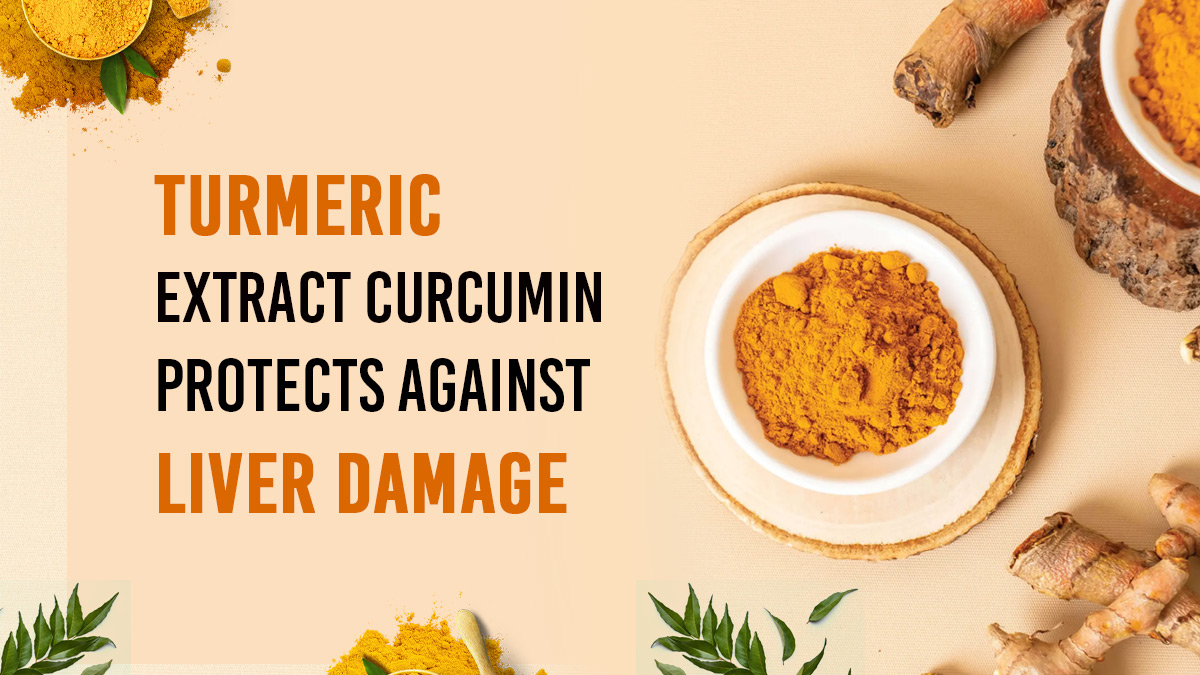Turmeric Extract: Curcumin Protects Against Liver Damage

Healthy Foods your children will Love
October 22, 2022
Antioxidant Vitamins for healthy-looking skin
November 5, 2022Turmeric Extract: Curcumin Protects Against Liver Damage
Turmeric is a widely used spice and also the main ingredient of curry. It contains several beneficial properties that can help our bodies. Research shows that turmeric has many benefits for our health. According to the research conducted so far, turmeric may help with inflammation, pain, arthritis, skin issues such as acne and eczema, heart disease, and possibly even cancer prevention. Furthermore, curcumin is the most abundant active compound present in turmeric. This article will explore in detail what turmeric is, why it’s good for you, where you can find it, and how you can add it to your diet easily.
What is Turmeric?
Turmeric is a spice commonly used in Indian cuisine, especially in curry dishes. It’s also an important ingredient in Chinese and Ayurvedic herbal medicine. Turmeric is one of the most widely used spices in the world. It’s a member of the ginger family and is native to India and tropical regions of Southeast Asia, especially southern China and Northern Southeast Asia. While turmeric has been a staple in Indian Ayurvedic herbal medicine for centuries, it has only recently become popular in the West. Turmeric has a deep yellow colour and a strong, bitter taste. It’s a tropical plant that’s cultivated for its yellow root. The root is dried, ground up, and then used in cooking or to make supplements.
Why Is Turmeric Good for You?
Turmeric has many health benefits. Many of these benefits come from turmeric’s main active compound called curcumin. Curcumin has been researched and studied by many scientists and has shown to have many health benefits. Curcumin is known to have anti-inflammatory properties and therefore may be helpful in conditions like fatty liver, and arthritis. It’s also known to have antioxidant properties that may help protect against some types of cancers and heart disease. Curcumin has also been shown to help treat certain types of digestive disorders, such as irritable bowel syndrome. Turmeric may also help treat skin disorders such as eczema, psoriasis, and acne.
Where Can You Find Turmeric?
You can find turmeric in most supermarkets or health food stores. It’s often sold as a powder, an extract, or in a root form. You can also find turmeric in Indian or Asian restaurants. It’s commonly used in curries and other dishes in those cultures. You can buy turmeric in many different forms, so it’s easy to add it to your diet.
7 Health Benefits of Turmeric Extract Curcumin
Anti-inflammatory properties - It’s been shown to be helpful in conditions like arthritis, inflammatory bowel diseases, and psoriasis.
- Anti-oxidant properties - This means it can help protect the body from free radicals that may cause certain types of cancers and heart disease.
- May help lower blood sugar in people with diabetes - Studies show that turmeric may help lower blood sugar levels in people with diabetes.
- Helps treat certain digestive disorders - Studies show that curcumin in turmeric may help treat irritable bowel syndrome, ulcerative colitis, and gastroesophageal reflux disease.
- May help treats certain types of cancers - Studies show that curcumin in turmeric may help treat certain types- of cancers.
- Helps treat certain skin disorders - Studies show that turmeric may help treat certain skin disorders, such as psoriasis, eczema, and acne.
3 Additional Health Benefits of Turmeric
Good for your heart - Turmeric may help to prevent heart disease because of its antioxidant properties.
- Good for your brain - Studies show that turmeric may help prevent and treat certain types of brain diseases like Alzheimer’s and Parkinson’s disease.
- Helps with weight loss - Turmeric may also be helpful in weight loss since it has anti-inflammatory properties.
2 Warnings When Using Turmeric
Contraindications - Turmeric has very few contraindications. However, it can interact with certain medications. If you’re taking any medications, you should talk to your health care professional before using turmeric.
- Interactions - Some of the drugs that interact with turmeric include blood-thinning medications, blood pressure medications, and certain cancer medications.
Turmeric and Liver Damage
After naming numerous benefits of curcumin, there is one more good use of turmeric extract. It is used in treating fatty liver, and acute and chronic liver injury. It has been evaluated as a potential therapy for liver damage, without worsening any preexisting liver conditions.
Conclusion
Turmeric is a spice that has been used medicinally for thousands of years. It is a herb that has no side effects and is excellent for everybody’s health. It contains anti-inflammatory properties that help to treat arthritis, digestive disorders, and skin disorders. It also contains anti-oxidant properties that help fight against cancer. Turmeric is widely available as a spice, root, extract, or supplement form, and it’s easy to add to your diet. The benefits of turmeric include anti-inflammatory, anti-oxidant, and anti-cancer properties, which make it a powerful spice that can help improve your health.





